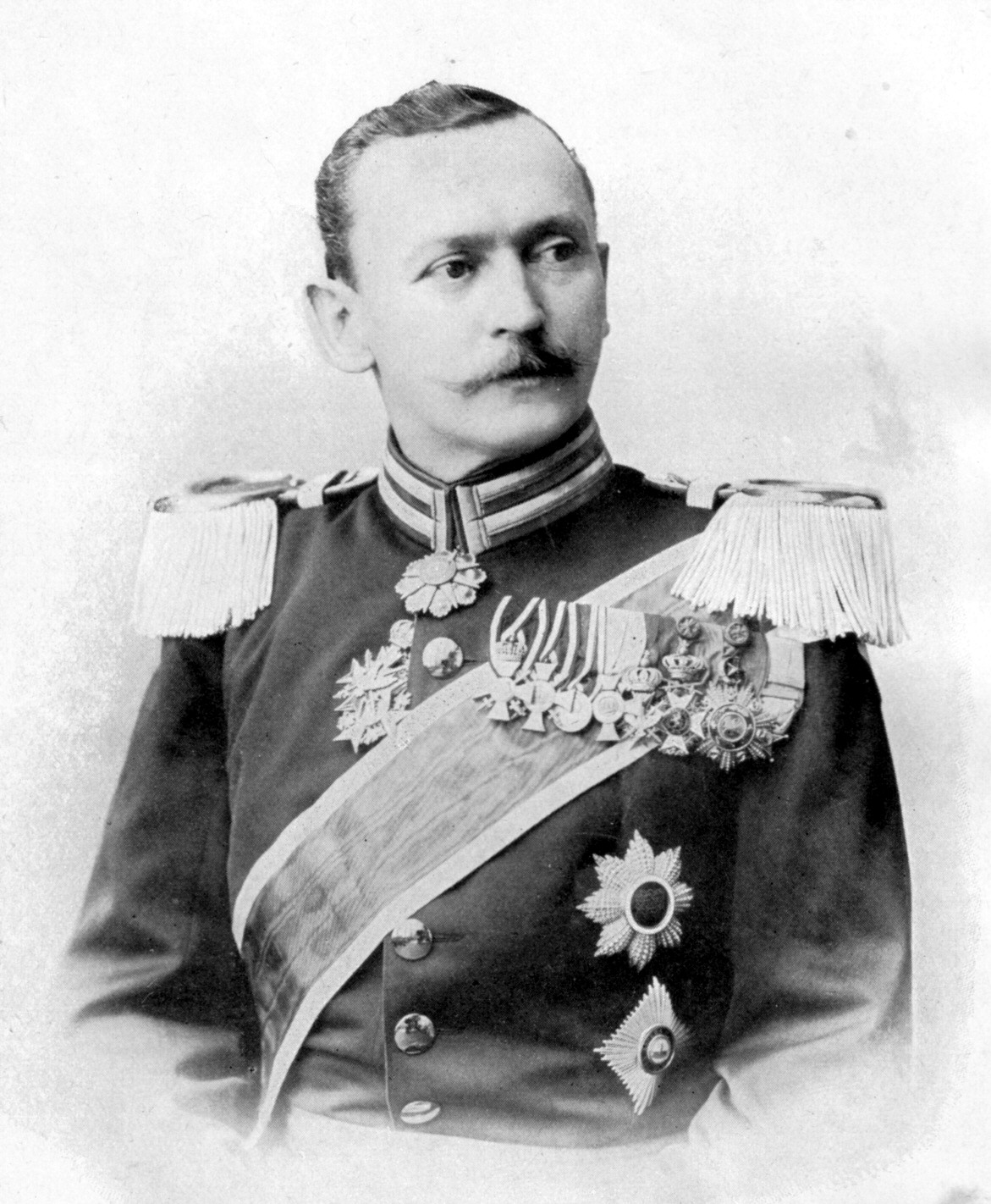|
Senta Dinglreiter
Senta Dinglreiter (31 March 1893 – 14 April 1969) was a German writer. She was a convinced National Socialist and in the 1930s and 1940s mainly wrote travelogues and novels about the former German colonies. Life Dinglreiter was born in 1893 in Fürstenzell in Lower Bavaria. She grew up on a farm and while already in her youth she wanted to travel the world, she had to help out at her family farm and had little access to formal education. At the age of 19, she moved to Munich and began an apprenticeship as a cook. She started to do photography in order to be able to finance travelling and also tried opening a photography studio in Munich. In 1925, she traveled to the United States and stayed several months in New York, Chicago and Denver. She worked as a secretary in an engineering company in Chicago and as a maid in Denver. Afterwards she continued traveling to Thailand, Vietnam and Cambodia. She entered the Nazi Party on 9 August 1926, several years before Adolf Hitler's rise t ... [...More Info...] [...Related Items...] OR: [Wikipedia] [Google] [Baidu] |
Nazism
Nazism (), formally named National Socialism (NS; , ), is the far-right totalitarian socio-political ideology and practices associated with Adolf Hitler and the Nazi Party (NSDAP) in Germany. During Hitler's rise to power, it was frequently referred to as Hitler Fascism () and Hitlerism (). The term " neo-Nazism" is applied to other far-right groups with similar ideology, which formed after World War II, and after Nazi Germany collapsed. Nazism is a form of fascism, with disdain for liberal democracy and the parliamentary system. Its beliefs include support for dictatorship, fervent antisemitism, anti-communism, anti-Slavism, anti-Romani sentiment, scientific racism, white supremacy, Nordicism, social Darwinism, homophobia, ableism, and the use of eugenics. The ultranationalism of the Nazis originated in pan-Germanism and the ethno-nationalist '' Völkisch'' movement which had been a prominent aspect of German ultranationalism since the late 19th centu ... [...More Info...] [...Related Items...] OR: [Wikipedia] [Google] [Baidu] |
Schutztruppe
(, Protection Force) was the official name of the colonial troops in the African territories of the German colonial empire from the late 19th century to 1918. Similar to other colonial armies, the consisted of volunteer European commissioned and non-commissioned officers, medical and veterinary officers. Most enlisted ranks were recruited from indigenous communities within the German colonies or from elsewhere in Africa. Military contingents were formed in German East Africa, where they became famous as , in the Kamerun colony of German West Africa, and in German South West Africa. Control of the German colonies of German New Guinea, New Guinea, in German Samoa, Samoa, and in Togoland was performed by small local police detachments. Kiautschou Bay Leased Territory, Kiautschou in China under Imperial German Navy, Imperial Navy administration was a notable exception. As part of the East Asian Station the navy garrisoned Qingdao with the marines of III, the only all-German unit w ... [...More Info...] [...Related Items...] OR: [Wikipedia] [Google] [Baidu] |
Writers From Bavaria
A writer is a person who uses written words in different writing styles, genres and techniques to communicate ideas, to inspire feelings and emotions, or to entertain. Writers may develop different forms of writing such as novels, short stories, monographs, travelogues, plays, screenplays, teleplays, songs, and essays as well as reports, educational material, and news articles that may be of interest to the general public. Writers' works are nowadays published across a wide range of media. Skilled writers who are able to use language to express ideas well, often contribute significantly to the cultural content of a society. The term "writer" is also used elsewhere in the arts and music, such as songwriter or a screenwriter, but also a stand-alone "writer" typically refers to the creation of written language. Some writers work from an oral tradition. Writers can produce material across a number of genres, fictional or non-fictional. Other writers use multiple media such a ... [...More Info...] [...Related Items...] OR: [Wikipedia] [Google] [Baidu] |
Advocates Of Colonization
An advocate is a professional in the field of law. Different countries and legal systems use the term with somewhat differing meanings. The broad equivalent in many English law–based jurisdictions could be a barrister or a solicitor. However, in Scottish, Manx, South African, Italian, French, Spanish, Portuguese, Scandinavian, Polish, Israeli, South Asian and South American jurisdictions, "advocate" indicates a lawyer of superior classification. "Advocate" is in some languages an honorific for lawyers, such as " Adv. Sir Alberico Gentili". "Advocate" also has the everyday meaning of speaking out to help someone else, such as patient advocacy or the support expected from an elected politician; this article does not cover those senses. Europe United Kingdom and Crown dependencies England and Wales In England and Wales, Advocates and proctors practiced civil law in the Admiralty Courts and also, but in England only, in the ecclesiastical courts of the Church of England ... [...More Info...] [...Related Items...] OR: [Wikipedia] [Google] [Baidu] |
German Nazi Propagandists
German(s) may refer to: * Germany, the country of the Germans and German things **Germania (Roman era) * Germans, citizens of Germany, people of German ancestry, or native speakers of the German language ** For citizenship in Germany, see also German nationality law **Germanic peoples (Roman era) *German diaspora * German language * German cuisine, traditional foods of Germany People * German (given name) * German (surname) * Germán, a Spanish name Places * German (parish), Isle of Man * German, Albania, or Gërmej * German, Bulgaria * German, Iran * German, North Macedonia * German, New York, U.S. * Agios Germanos, Greece Other uses * German (mythology), a South Slavic mythological being * Germans (band), a Canadian rock band * "German" (song), a 2019 song by No Money Enterprise * ''The German'', a 2008 short film * "The Germans", an episode of ''Fawlty Towers'' * ''The German'', a nickname for Congolese rebel André Kisase Ngandu See also * Germanic (disambiguatio ... [...More Info...] [...Related Items...] OR: [Wikipedia] [Google] [Baidu] |
German Travel Writers
German(s) may refer to: * Germany, the country of the Germans and German things **Germania (Roman era) * Germans, citizens of Germany, people of German ancestry, or native speakers of the German language ** For citizenship in Germany, see also German nationality law **Germanic peoples (Roman era) * German diaspora * German language * German cuisine, traditional foods of Germany People * German (given name) * German (surname) * Germán, a Spanish name Places * German (parish), Isle of Man * German, Albania, or Gërmej * German, Bulgaria * German, Iran * German, North Macedonia * German, New York, U.S. * Agios Germanos, Greece Other uses * German (mythology), a South Slavic mythological being * Germans (band), a Canadian rock band * "German" (song), a 2019 song by No Money Enterprise * ''The German'', a 2008 short film * "The Germans", an episode of ''Fawlty Towers'' * ''The German'', a nickname for Congolese rebel André Kisase Ngandu See also * Germanic (di ... [...More Info...] [...Related Items...] OR: [Wikipedia] [Google] [Baidu] |
Black Horror On The Rhine
The Black Horror on the Rhine was a moral panic aroused in Weimar Germany and elsewhere concerning allegations of widespread crimes, especially sexual crimes, supposedly committed by Senegalese Tirailleurs, Senegalese and other African soldiers serving in the French Army during the French occupation of the Rhineland between 1918 and 1930. ''Die schwarze Schande'' or w:de:Alliierte Rheinlandbesetzung#.E2.80.9ESchwarze Schmach.E2.80.9C, ''Die schwarze Schmach'' ("the Black Shame" or "the Black Disgrace") were terms used by right-wing press as German nationalism, German nationalist propaganda in opposition to these events. The colonial troops referred to were soldiers from Senegal, Indochina, and Madagascar. The majority of colonial African soldiers were accused of committing rape and mutilation against the German population by government propaganda and newspapers, despite a lack of complaints in the region itself. The campaign reached its peak between 1920 and 1923, but did not sto ... [...More Info...] [...Related Items...] OR: [Wikipedia] [Google] [Baidu] |
Swastika
The swastika (卐 or 卍, ) is a symbol used in various Eurasian religions and cultures, as well as a few Indigenous peoples of Africa, African and Indigenous peoples of the Americas, American cultures. In the Western world, it is widely recognized as a symbol of the German Nazi Party who Cultural appropriation, appropriated it for their party insignia starting in the early 20th century. The appropriation continues with its use by Neo-Nazism, neo-Nazis around the world. The swastika was and continues to be used as a symbol of divinity and spirituality in Indian religions, including Hinduism, Buddhism, and Jainism. It generally takes the form of a cross, the arms of which are of equal length and perpendicular to the adjacent arms, each bent midway at a right angle. The word ''swastika'' comes from , meaning 'conducive to well-being'. In Hinduism, the right-facing symbol (clockwise) () is called , symbolizing ('sun'), prosperity and good luck, while the left-facing symbol ... [...More Info...] [...Related Items...] OR: [Wikipedia] [Google] [Baidu] |
Antisemitism
Antisemitism or Jew-hatred is hostility to, prejudice towards, or discrimination against Jews. A person who harbours it is called an antisemite. Whether antisemitism is considered a form of racism depends on the school of thought. Antisemitic tendencies may be motivated primarily by negative sentiment towards Jewish peoplehood, Jews as a people or negative sentiment towards Jews with regard to Judaism. In the former case, usually known as racial antisemitism, a person's hostility is driven by the belief that Jews constitute a distinct race with inherent traits or characteristics that are repulsive or inferior to the preferred traits or characteristics within that person's society. In the latter case, known as religious antisemitism, a person's hostility is driven by their religion's perception of Jews and Judaism, typically encompassing doctrines of supersession that expect or demand Jews to turn away from Judaism and submit to the religion presenting itself as Judaism's suc ... [...More Info...] [...Related Items...] OR: [Wikipedia] [Google] [Baidu] |





